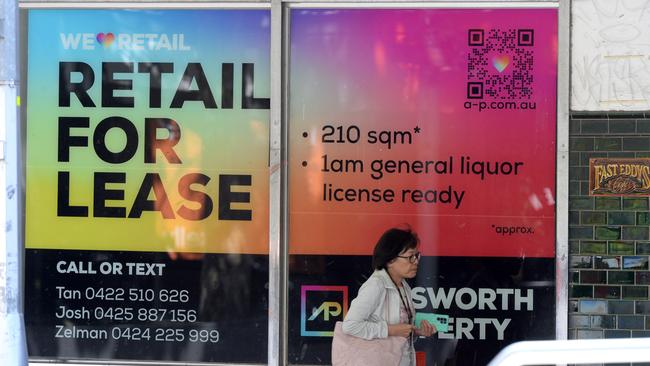Small business upbeat despite cost-of-living pressures
Small and medium-sized businesses across Australia are still optimistic about future growth despite the cost of living pressures being felt by many of their customers.

Most Australian small and medium-sized enterprises (SMEs) remain optimistic about future growth despite cost-of-living pressures felt by many of their customers.
According to a survey by ScotPac, 53 per cent of SMEs are projecting revenue growth to September – down from 57 per cent last year – compared with just a third, or 32 per cent, flagging a decline in revenue. Victorian businesses are the least positive about the future with Queensland and Western Australia the most upbeat.
The average predicted growth rate of 8.8 per cent is the highest recorded in the decade-long history of ScotPac’s SME Growth Index Report, surpassing the previous high of 8.6 per cent in the very first edition in 2014.
ScotPac, Australia and New Zealand’s largest non-bank SME business lender, warned there were clear signs of strain, with the gap between high and low SME growth projections ballooning to 38 percentage points, and the average rate of predicted revenue contraction reaching a new high of negative 10 per cent.
WA and Queensland SMEs remain the most positive in the nation, with 89 per cent and 81 per cent respectively forecasting six-month revenue growth.
Victorian SMEs are the nation’s most pessimistic with just 14 per cent projecting revenue growth compared with 65 per cent flagging a decline in fortunes.

NSW SMEs occupied the cautious middle ground with 43 per cent predicting revenue growth, 27 per cent forecasting revenue decline, and 30 per cent anticipating no change.
ScotPac chief executive Jon Sutton said the growing chasm in SME revenue projections painted a vivid picture that confirmed Australia’s post-Covid, two-speed economy is alive and well.
“The fact that most SMEs remain optimistic in a challenging economic climate is a great indicator of the agility of Australian business owners who continue to adapt and thrive,” Mr Sutton said.
“A lot of businesses we work with are investing in new equipment or technology in fast-growing sectors like health and aged care, e-commerce and renewable energy. Other sectors like construction, restaurants and cafes and shopfront retail face ongoing challenges with issues including material costs, supply chain disruptions and cost-of-living rises that are squeezing discretionary spending.“
NAB reported this week that business conditions edged down further in June, continuing the trend since peaking in late 2022. Conditions declined in wholesale, construction, manufacturing and finance, business and property in the month, with the non-mining goods sectors now clearly softer than the services sectors.
Retail, despite increasing in the month, remains weakest and the only industry in negative territory. Business confidence – driven by a broadbased increase across industries – rose sharply in the month to its highest since early 2023.
Company directors are having to refinance their homes to meet debts and ongoing expenses amid the deteriorating economic downturn, according to insolvency expert Jarvis Archer.
Liquidations continue to represent about 65 per cent of company insolvencies compared to about 25 per cent being restructured to save the business, according to Mr Archer.
“This indicates most companies facing insolvency are being closed rather than just one in four being rescued,” said Mr Archer, head of restructuring at Business Reset. Insolvencies nationwide in the 2024 financial year topped 11,000 for the first time, according to preliminary figures calculated by Mr Archer using ASIC data.
“It was the biggest financial year of company insolvencies on record,” said Mr Archer.





